Director Ryan Coogler reveals why it would have been a crime not to make a Black Panther sequel
Director Ryan Coogler nearly walked away from the Marvel Cinematic Universe after Chadwick Boseman died, but something special changed his mind.
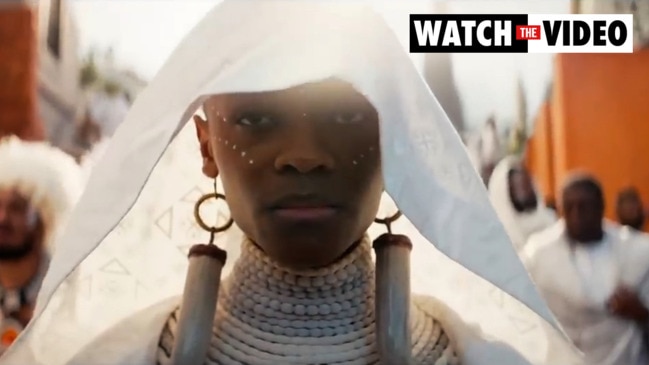
SmartDaily
Don't miss out on the headlines from SmartDaily. Followed categories will be added to My News.
Even before the sad and unexpected loss of his leading man, Chadwick Boseman, director Ryan Coogler felt the enormity of following the success of Black Panther.
The 18th film in the Marvel Cinematic Universe, with the charismatic Boseman in the title role, was not just a box office success when it was released in 2018, it also became a genuine pop culture phenomenon.
In addition to its $2.3 billion global haul (now the ninth highest grossing film ever), the celebration of black culture stemming from the fictional African country of Wakanda and its super-powered king influenced fashion and music, and became the first superhero movie to be nominated for the Best Picture Oscar.
Coogler, directing only his third film after the acclaimed indie Fruitvale Station and Rocky sequel Creed, had already had his life transformed before anyone had seen a frame of Black Panther. He’d relocated from his native California while he scouted locations around the world for the $310 million blockbuster and then found himself filming huge set pieces and action scenes in Atlanta with heavy-hitters such as Boseman, Oscar-winners Lupita Nyong’o and Forrest Whittaker, Andy Serkis and Martin Freeman.
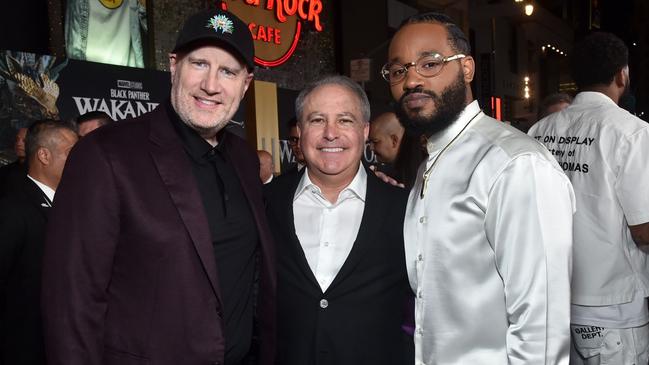
Coogler admits that the prospect of topping the spectacle and emotion that made the first film so successful, with the added burden of audience expectation, weighed heavily on him as he set to work on the inevitable sequel.
“It did feel like, ‘oh shit – I am about to get into something again that’s going to be big’,” Coogler recalls.
“We knew we wanted to be ambitious in scale and scope. At that point we knew it was going to be a water movie and I didn’t know how to swim at the time, so I had to learn how to swim. All these things were a part of it – not to mention that the pandemic became a reality shortly after that. So, I definitely felt the enormity of it.”
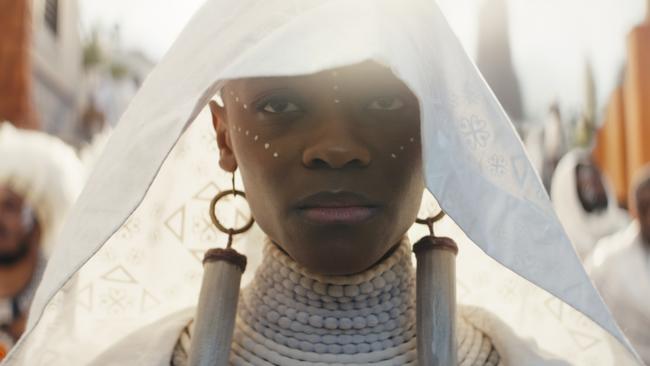
But return he did, and after ongoing consultations with Boseman about where the sequel was going, he had just handed in his first draft of the script for feedback from the studio when he got that call that his leading man had died from colon cancer, aged 43. Boseman had kept his 2016 diagnosis secret from all but a select few family members and close associates, and Coogler was so shocked and devastated that he seriously thought about walking away from the sequel entirely.
So, what turned him around and convinced him to press on?
“Chad,” he says simply. “It was thinking about him and how he lived the final years of his life. And also, just things that he would say to me, going back over conversations that we were having. I watched a lot of interviews with him – and quite a few of them I was sitting next to him. It is actually quite profound to lose somebody and there is that much photography of us together because we made a movie together and then had to go and promote it.”
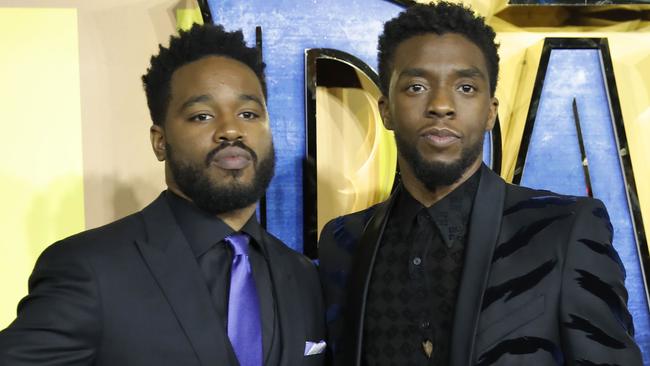
Watching the many interviews they did together gave Coogler a fresh perspective of some of Boseman’s words and how some of the things he said “took on greater significance”.
He particularly remembered the stirring speech the actor gave at the 2019 Screen Actors Guild Awards about how Black Panther had changed the industry and empowered black actors, and ended with the words “I know that you can’t have a Black Panther now without a 2 on it”.
“I remember every word he said like it was yesterday,” says Coogler. “He said it with, like, a wink, and now I know he was winking at me. So, it would have been a crime to not keep going. It would have been selfish of me.”
Coogler says that he and the Marvel team considered recasting the Boseman’s part of King T’Challa/Black Panther, as they had done previously when Don Cheadle took over from Terrence Howard as War Machine and Mark Ruffalo replaced Ed Norton as Hulk.
Instead, they chose to write the central character’s death into the story of the sequel Wakanda Forever, which shifts the spotlight to the mostly female characters including T’Challa’s sister Shuri (Letitia Wright), mother and new queen Ramonda (Angela Bassett), and one-time lover and master spy Nakia (Nyong’o) as they face a new threat from an underwater kingdom and its super-powered leader, Namor.
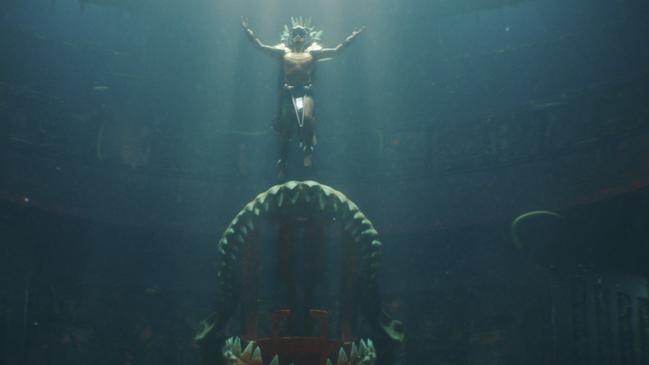
Despite the protests of some fans, Marvel boss Kevin Feige said it was “much too soon” to replace Boseman, and that the powerhouse studio was more interested how the actor’s legacy – and that of the character he played – could be continued respectfully.
“We made a choice that we felt like we could do in an honest way that had integrity for everybody,” Coogler says. “One of the biggest things that Chad taught me through actions and words was that it was OK to trust my judgment on this project. He had a lot more faith in me than I had in myself at that time. I think there was a reason he didn’t tell us what was going on – he was the most intentional person I ever met, so there was action in his inaction in terms of sharing the information with us of what he was going through. I think he was trusting us with the decision.”
Coogler now says that starting Wakanda Forever with the death and funeral of Boseman’s character was surreal and complicated, but he couldn’t let himself be affected by the emotion of it while there was a movie to be made.
“You have to compartmentalise when it comes to stuff like that, and get the work done and set the stage for the actors to do their work,” he says. “As a director, I can’t be falling apart on a film set – that’s not the place for it.”
Black Panther opens in cinemas on November 11.
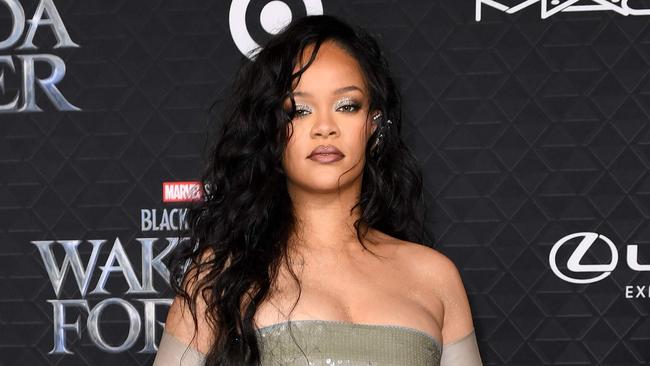
HEAVY LIFTING
One of the many achievements Ryan Coogler has managed in making Wakanda Forever is convincing Rihanna to release her first music in two and a half years.
The Grammy-winning superstar sings on two tracks on the film’s soundtrack, including the closing ballad Lift Me Up, which she co-wrote with Coogler, composer-producer Ludwig Goransson, and Nigerian singer-songwriter Tems.
Goransson, who wrote the Wakanda Forever soundtrack, came up with the bones of the song five years ago and asked his frequent collaborator Coogler to come up with some words to go with it when they thought it would be a good fit for the new film.
“I am not a songwriter, but I will do whatever Ludwig asks, and I sat there and thought about Chad, and thought about how much I had changed since the first time – I have become a father since then – and I wrote some words from the heart that ended up becoming the chorus,” Coogler says.
The pair then took the songs to Tems in Nigeria but getting Rihanna on board, who Coogler says was “doing her thing as a businesswoman and as a new mum”, was a team effort through connections with rapper Jay-Z and his Roc Nation empire.
“Rihanna came aboard and added something as a writer and performed it, and it was beautiful, man,” says Coogler.
“When it was all said and done, I feel like everyone was doing it for Chad. That’s who it was for. I think it’s a song that people who hear it think of different things, it’s a contemplative song. For me it’s a lullaby that can be sung from parent to child or from child to parent.”




